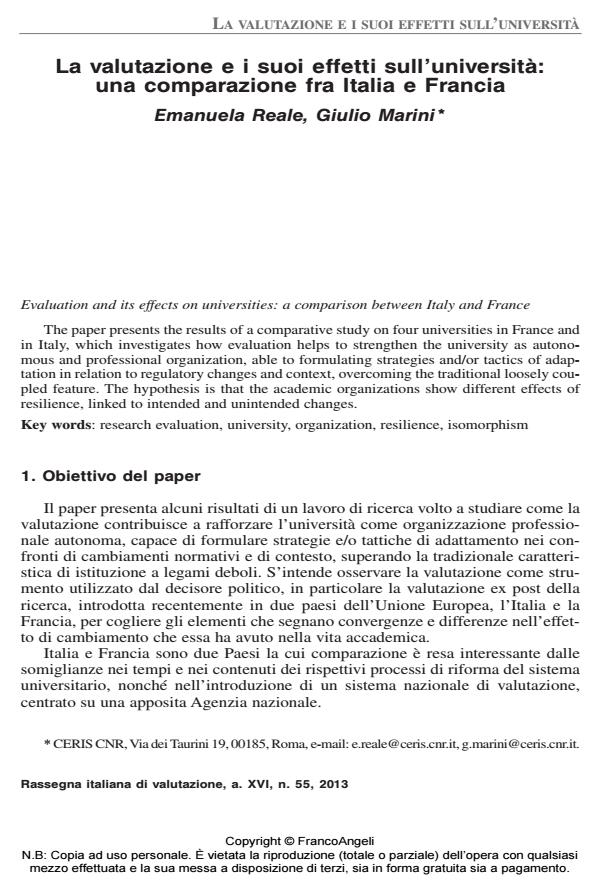La valutazione e i suoi effetti sull’università: una comparazione fra Italia e Francia
Titolo Rivista RIV Rassegna Italiana di Valutazione
Autori/Curatori Emanuela Reale, Giulio Marini
Anno di pubblicazione 2014 Fascicolo 2013/55
Lingua Italiano Numero pagine 20 P. 151-170 Dimensione file 602 KB
DOI 10.3280/RIV2013-055009
Il DOI è il codice a barre della proprietà intellettuale: per saperne di più
clicca qui
Qui sotto puoi vedere in anteprima la prima pagina di questo articolo.
Se questo articolo ti interessa, lo puoi acquistare (e scaricare in formato pdf) seguendo le facili indicazioni per acquistare il download credit. Acquista Download Credits per scaricare questo Articolo in formato PDF

FrancoAngeli è membro della Publishers International Linking Association, Inc (PILA), associazione indipendente e non profit per facilitare (attraverso i servizi tecnologici implementati da CrossRef.org) l’accesso degli studiosi ai contenuti digitali nelle pubblicazioni professionali e scientifiche.
The paper presents the results of a comparative study on four universities in France and in Italy, which investigates how evaluation helps to strengthen the university as autonomous and professional organization, able to formulating strategies and/or tactics of adaptation in relation to regulatory changes and context, overcoming the traditional loosely coupled feature. The hypothesis is that the academic organizations show different effects of resilience, linked to intended and unintended changes.
Parole chiave:Research evaluation, university, organization, resilience, isomorphism
Emanuela Reale, Giulio Marini, La valutazione e i suoi effetti sull’università: una comparazione fra Italia e Francia in "RIV Rassegna Italiana di Valutazione" 55/2013, pp 151-170, DOI: 10.3280/RIV2013-055009